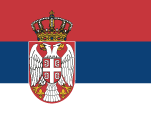Study program / study programs: E-BUSINESS
Type and level of studies: Undergraduate applied studies
Subject: PROGRAMMING TOOLS
Status: Mandatory
ECTS credits: 8
Course objective
The objective of the Programming Tools course is the acquisition of the fundamental knowledge of programming languages, the tools used in the process of software design and development, the decision-making techniques regarding the selection of an adequate programming language,and the programming process itself. The students will also master the use of integrated environments and their tools, with a special emphasis on the programming language C# and Microsoft Visual Studio 2012.
Course outcome
The students will learn the programming language C# and all its elements, from data types and basic program structure to exceptions and exception handling; collections – both standard and generic. Work with input-output flows, as well as work with files and folders. Visual programming techniques through work in Windows forms. Manipulating form controls, from simple ones such as Button and TextBox, through controls for working with more complex data structures such as listis, to working with standard Windows dialogues. Advanced controls. User input validation. Starting other processes through form. ADO.NET architecture. Establishing a connection with a database. Work in connected and disconnected environments. Manipulating data in the database – writing, deleting, reading, updating. Executing SQL commands and stored procedures. The students who pass the exam will be able to understand the process of creating a program by using different integrated environment and programming tools; reformulate, adapt and change inadequate software solutions, for independent work and developing complex desktop applications in object-oriented environment, using the C# programming language and Microsoft Visual Studio, including database manipulation using SQL commands and stored procedures.
Course content
Theoretical classes
- Different types of programming languages
- Lexical and syntactic specification and analysis of languages
- Assemblers, compilers and interpreters
- Integrated environments
- MS Visual Studio
- The principles of program development
- Error detection
- Software testing
- Program structure in C#
- Exceptions and exception handling
- Collections
- Delegates and events
- Input-output flows
- Windows forms
- Basic controls
- ADO.NET architecture
- Establishing connection with database
- Work in connected environment
- Executing SQL commands and stored procedures in databases
- Creating reports
- Advanced Windows controls
- Globalization and localization
- Delivering completed applications
Practical classes (exercises)
- Introduction to MS Visual Studio 2012 environment
- Demonstrating the basic procedure and techniques explained in lectures
- Independent task-solving by students
- Independent application development
